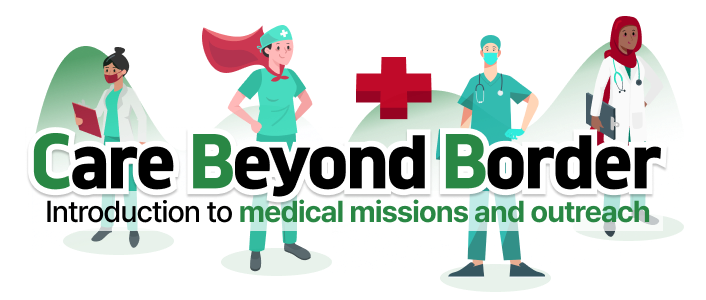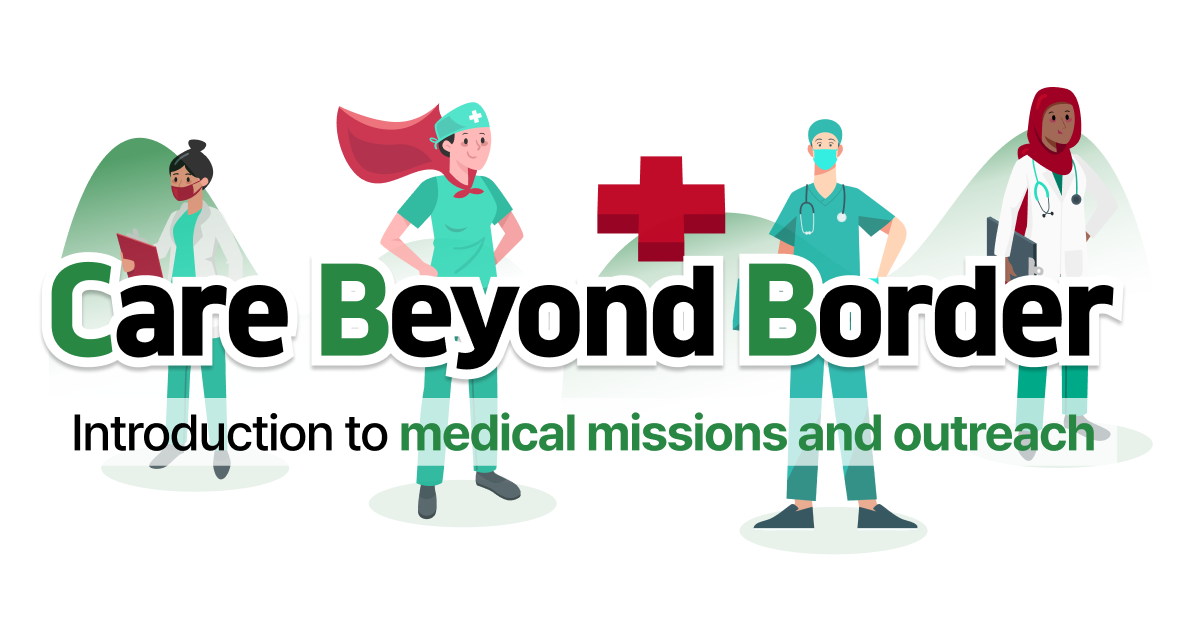Professor and Student Collaborate on the Impact of Foreign Medical Missions
Medical missions abroad have long been a way for healthcare professionals to extend their expertise to underserved areas, offering vital services to locations that lack sufficient medical care. Yet, the ethical dimensions and long-term impact of these missions are subjects gaining increasing attention. In a unique pairing, Lindsay Jarman, a passionate nursing student with extensive volunteer experience, and Dr. Bege Dauda, an assistant professor of bioethics and global health ethics, have teamed up to study these very issues.
Lindsay Jarman's Journey to Global Health Advocacy
Lindsay Jarman’s foray into nursing and global health is one marked by diverse experiences and a deep-seated passion to serve others. Before settling in Charlotte in 2023, Jarman honed her skills in the dynamic environment of a Level 1 trauma center in downtown Atlanta. Her time there was punctuated by confronting daily challenges and honing her emergency care expertise. Yet, it was her profound interest in global health and charity work that truly shaped her professional pursuits.
Balancing motherhood with her career aspirations led Jarman to East Carolina University’s online BSN to Ph.D. program. This decision was influenced by her desire to continue impactful work and research from home, allowing her to focus on long-term benefits of medical practices across the globe. Jarman found herself drawn to the program's promise of addressing global health issues through research and education, bolstered by ECU's robust support system.
The insights she gained from overseas missions brought forth a desire to deepen the understanding of social responsibility within the realm of nursing, linking health care work to broader ethical endeavors. It was during her academic journey that she crossed paths with Dr. Bege Dauda, a serendipitous meeting that would guide her research activities into new and ethical dimensions.
The Class that Catalyzed a Shared Vision
Dr. Bege Dauda has carved out a niche in the intersection of bioethics and global health, making him a fit mentor for Jarman. His course on research ethics, which Jarman attended during the summer, served as a platform to explore the ethical challenges inherent in global health initiatives. This alignment of interests was a catalyst for both Jarman and Dauda to explore a collaborative relationship that sought to blend practical nursing with ethical research.
Their classroom interaction evolved into a substantial dialogue about the responsibilities and limits of Western medical professionals working in developing countries. Through critical discussion, Dauda emphasized the importance of respecting cultural norms and understanding the vulnerabilities of the populations they aim to support, driving home the necessity of ethical frameworks in such endeavors. This perspective resonated profoundly with Jarman, fueling her commitment to view nursing through an ethical lens that respects cultural diversity and fosters sustainable change.
Dauda's approach to teaching encapsulates the complexities involved in short-term medical missions, often highlighting the fleeting nature of these experiences and the potential for unintended consequences. The ethical responsibility these missions entail was nothing new to Jarman, whose previous work had exposed her to the myriad challenges faced by host communities once the Western volunteers left.
Researching the Impact of Medical Missions
The research collaboration between Jarman and Dauda delves deeper into how medical mission trips affect both the nurses who volunteer and the communities they serve. Jarman is keen to understand the transformative power of these missions on medical professionals, especially nurses, and whether engaging in such missions enhances their job satisfaction and prolongs their bedside service.
Jarman notes that while medical missions are often well-intentioned, they sometimes lack a comprehensive plan for sustainable development. When foreign teams depart, local communities can find themselves struggling to maintain the progress initiated in the brief presence of international aid workers. This disconnect often stems from mission trips that fail to account for local capacity building and long-term health education strategies.
Through her research with Dauda, Jarman aims to advocate for medical missions that integrate sustainable practices and foster authentic partnerships with local healthcare systems. The goal is not only to provide immediate care but to empower communities with knowledge and resources that endure beyond the temporary aid provided during missions.
Implications and Goals for Future Research
Jarman is focusing on a longitudinal study examining the experiences of ECU faculty and students involved in global health missions, particularly in Central America. By tracing the ethical acknowledgment and empathy developed through these missions, Jarman’s study aims to demonstrate the ripple effect of socially responsible care on nursing professionals' practice at home.
Moreover, Jarman's reflections pose important questions about the legacies of short-term medical missions, emphasizing the need for preventive measures and education over mere provision of material goods. Her research suggests that empowering communities to understand and respond to their health challenges is a more ethical approach than transient aid supplies.
Jarman and Dauda’s collaboration aims to share their insights through scholarly channels, including a commentary article aimed at contributing to the existing literature on ethical deeds in global health initiatives. They also anticipate presenting their findings at academic gatherings, hoping to spark further discourse on the importance of ethics in foreign medical missions.
This empowering partnership, backed by Dauda’s mentorship and Jarman’s fervor for meaningful change, exemplifies a productive blend of passion and scholarship. It advances the dialogue on ethical international healthcare practices, providing tangible frameworks for sustainable global welfare efforts.
출처 : Original Source

